The Pokémon parody in Like a Dragon: Infinite Wealth innovates more than Scarlet and Violet did
Monsters and men
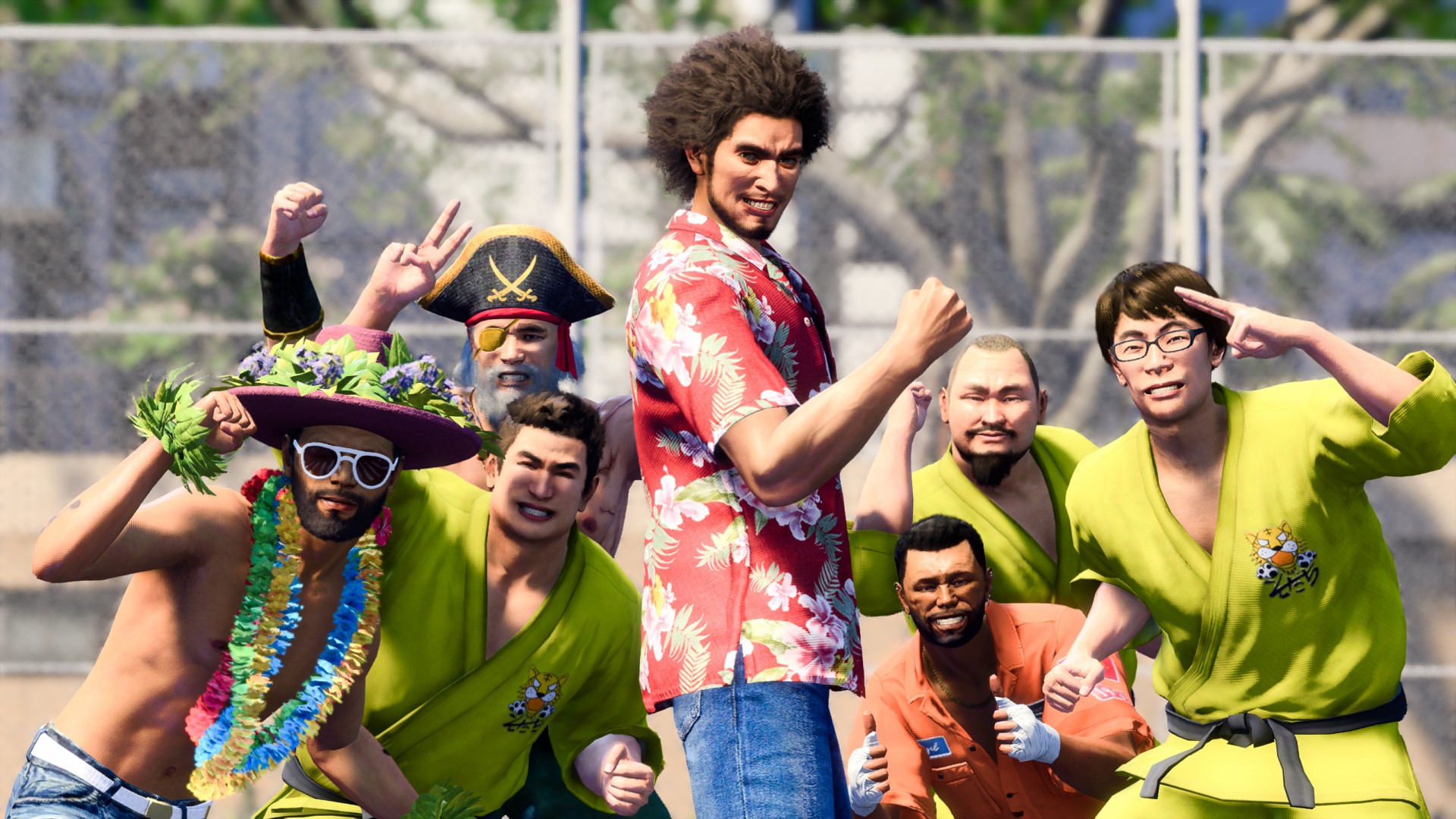
Sign up for breaking news, reviews, opinion, top tech deals, and more.
You are now subscribed
Your newsletter sign-up was successful
Like its Yakuza predecessors, Like a Dragon: Infinite Wealth breaks up its more heartfelt and dramatic moments with all sorts of weird and wonderful minigames like karaoke and darts. However, while these might seem like frivolous diversions from the main story on the outside, scratch the surface, and you’ll find something far more meaningful.
Much like how the karaoke rhythm game offers surprisingly resonant insights into the backstories of main characters, covered by the guise of an entertaining opportunity to stray from the traditional Yakuza experience, Infinite Wealth’s Pokémon parody had a great deal of hidden depth to offer, too. The minigame tasks you with collecting a squad of ‘super jittery men’ (abbreviated to ‘Sujimon) and coach them through what are, essentially, street brawls.
Who’s that Sujimon?
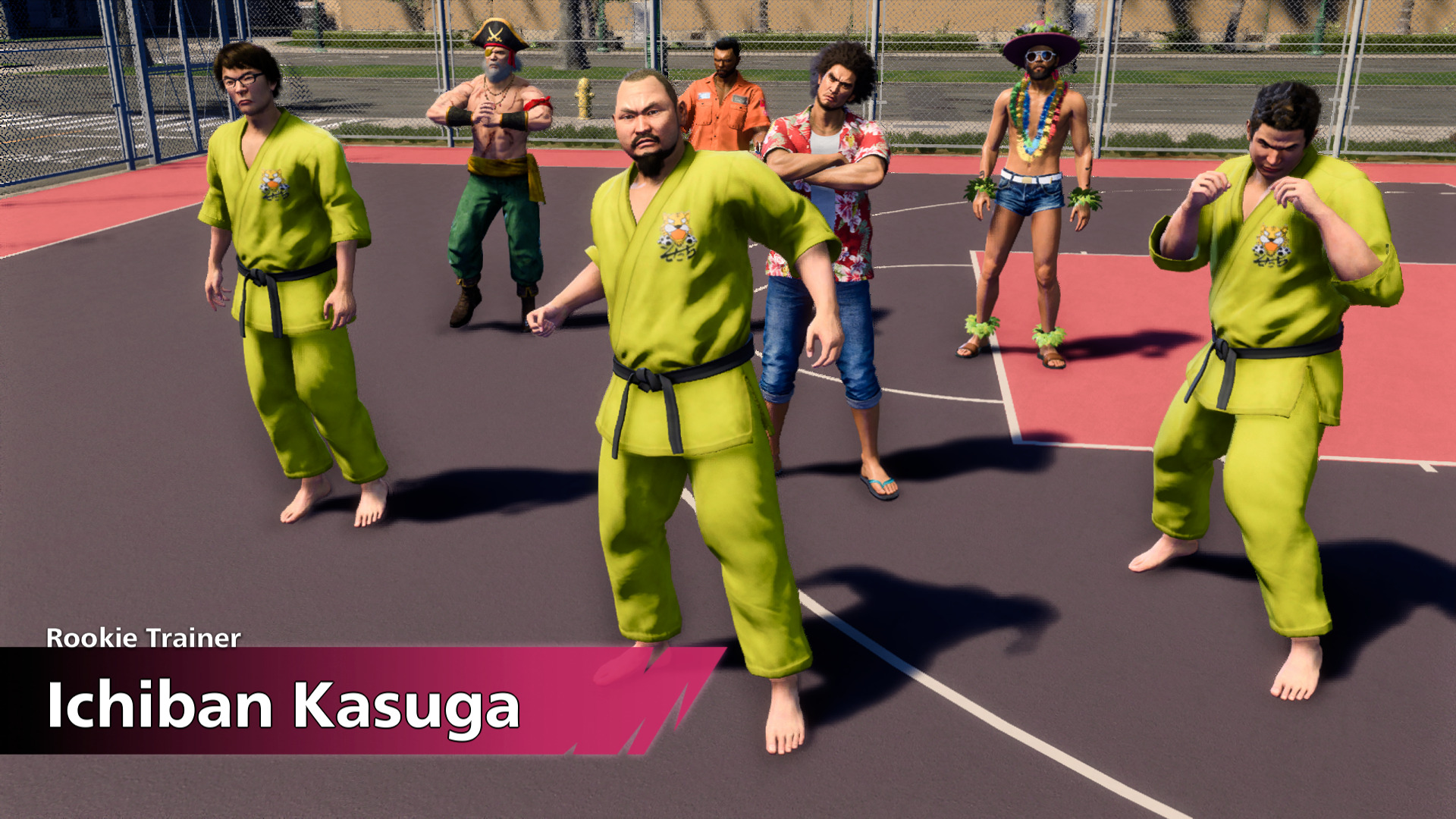
The introduction to this blatant parody is hilarious. Early on in Infinite Wealth, you’ll find yourself approached by the Sujimon Sensei, who looks like a combination of Professor Oak and a used-car salesman. Not only will he task you with completing the ‘Sujidex’ by discovering every type of Sujimon, but he’ll also ask you to help him clean up the competitive Sujimon League, which has fallen to vice and corruption.
To aid the adventure, Infinite Wealth’s map is peppered with rival Sujimon trainers to fight, ‘SujiStops’ where you can collect helpful Sujimon-centric items such as Sujimunch and Sujimon treats, a chance-based ‘gacha’ system for acquiring new Suji, and ‘raids’ where you can face self-contained mini-boss battles with the opportunity to capture more party members.
In many ways, Sujimon feels elegantly woven into the main game rather than a standalone side quest. Protagonist Ichiban Kasuga’s cheerful, earnest disposition makes him an ideal Ash Ketchum surrogate, a feeling that's supported by his wholesome belief in his Sujimon.
More than flattery
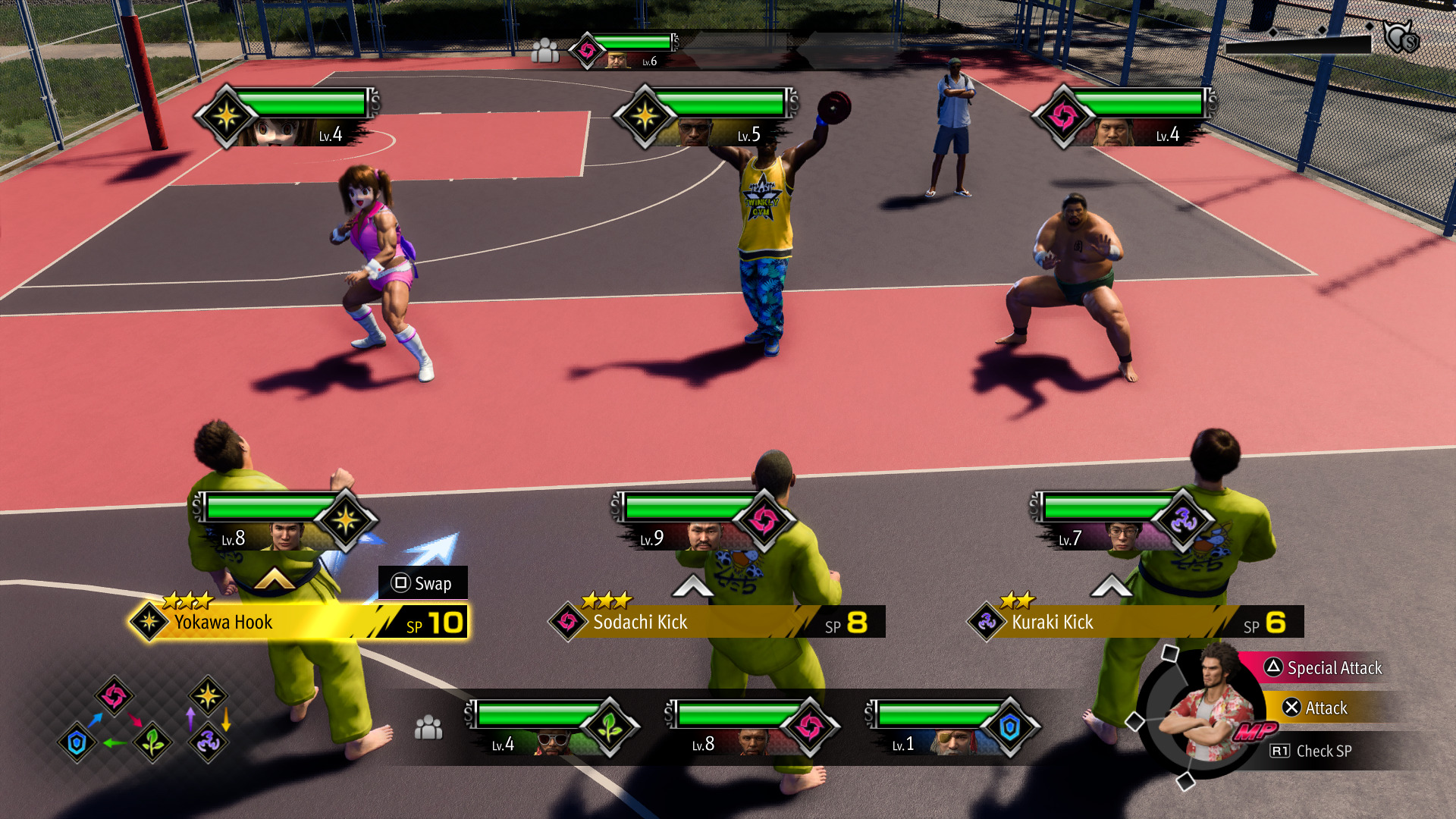
However, there’s so much more to Sujimon than a mere Pokémon parody. While the minigame uses parties of six and elemental weaknesses and resistances, there are plenty of differences to separate it from Nintendo’s traditional formula, too.
The battles themselves, which are typically a team of three verses three, make heavy use of positioning. Your parties of three standoffs opposite one another, forming three distinct lanes. Not only can you attack every turn, but you can also swap two of your Sujimon around for free. This already makes things more dynamic than Pokémon, where switching is only an option if you sacrifice your attack for the turn - a traditional approach that feels stale by comparison.
Sign up for breaking news, reviews, opinion, top tech deals, and more.
There are plenty of differences to separate Sujimon from Nintendo’s traditional formula
Sujimon attacks aren’t just single-target, either. When called upon to trade blows, your Suji of choice will hit the enemy directly ahead, as well as anything standing on either side of them. This, when combined with the damage bonuses and reductions caused by the elemental-type matchups, leads you to create complex ‘Sujimon mosaics’ as you frantically try to guide your team into the best position to cause the most damage.
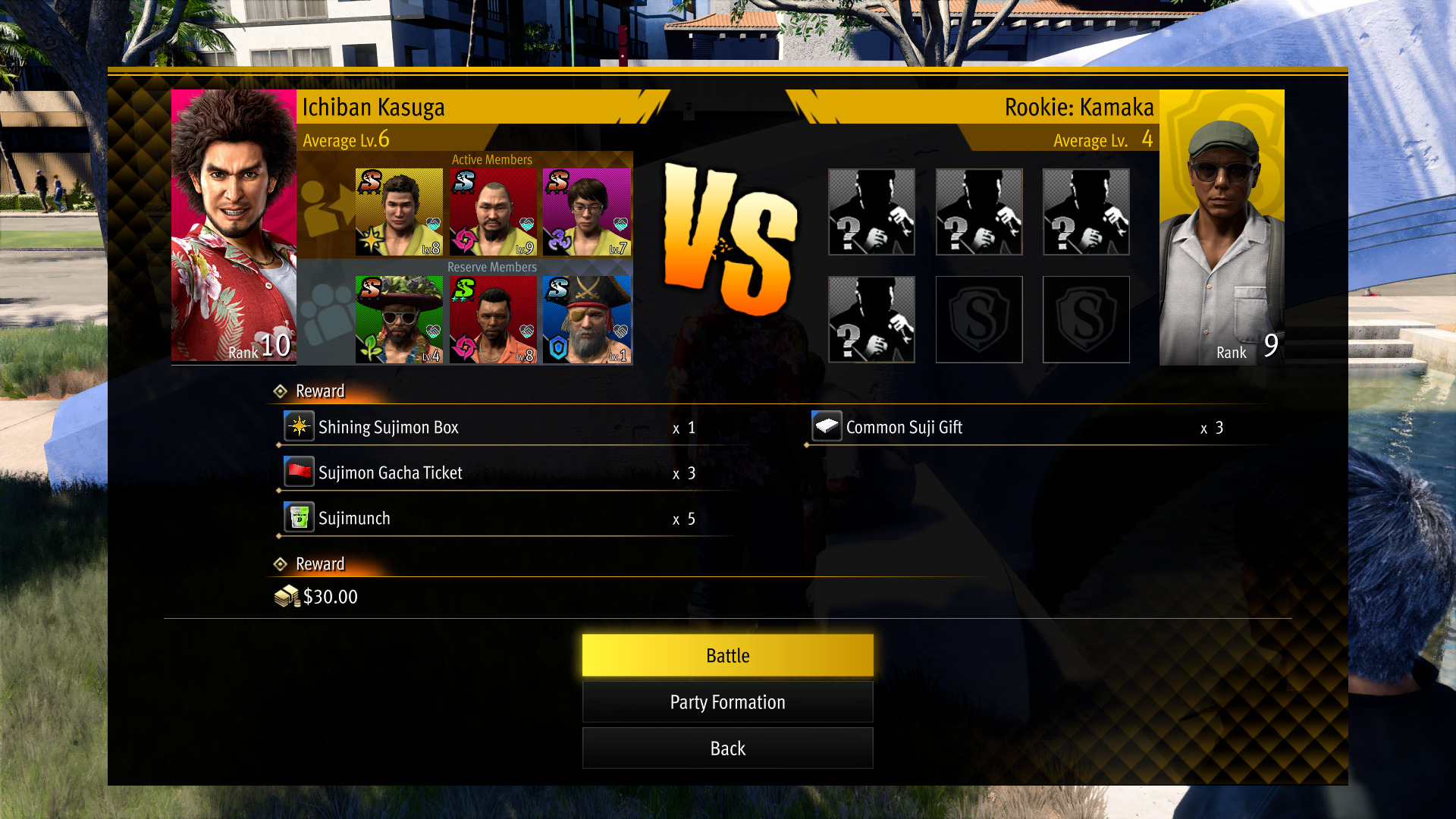
There’s also a clever action economy. Rather than politely taking turns, your squad accumulates Sujimon Power (SP) as time goes on and can act once it totals 10. Each attack costs SP, but different attacks require a different amount, meaning that you have to decide between acting quickly, dealing maximum damage, or doing something in between. As a result, you start to think more strategically about your next move.
You’ll also gain Morale Points (MP), too, which you acquire by dealing damage and exploiting enemy-type weaknesses. They can then be used to perform special moves which are unique to certain Sujimon. These can be anything from especially heavy attacks to powerful group heals - perfect for turning a battle around in the blink of an eye if need be.
These are layers of decision-making that you just don’t get in Pokémon. While Scarlet and Violet, the latest mainline additions to the series, did innovate by adding open-world elements, Sujimon’s emphasis on dynamic turn orders and meaningful positioning choices makes for battles that feel less samey than Pokémon’s routine back-and-forths.
Parody Power
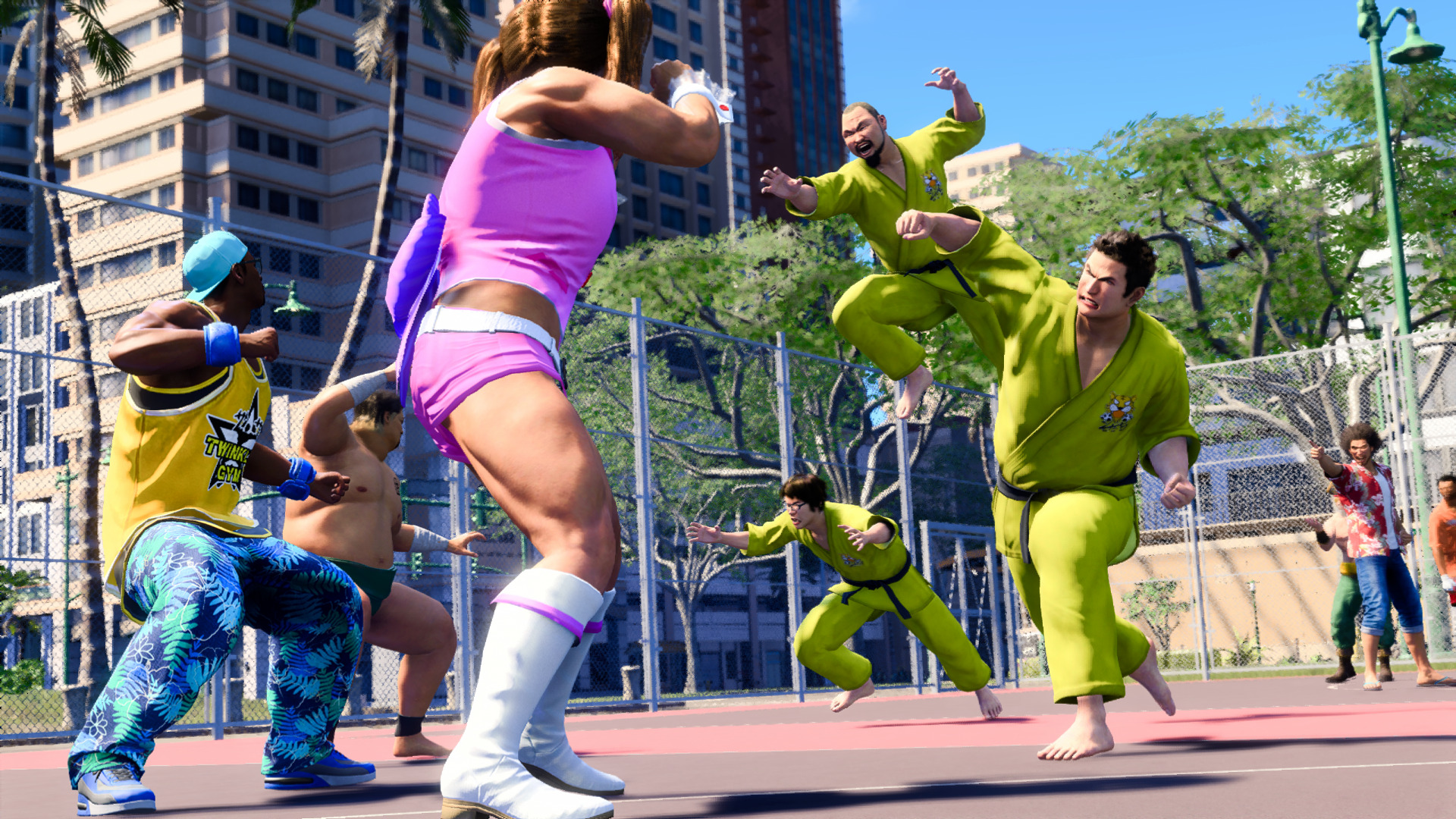
Sujimon doesn’t stop there, either. It also apes plenty of innovations from Niantic’s augmented-reality game Pokémon Go, weaving them into this absurd, yet surprisingly sophisticated minigame experience.
Dotted throughout Infinite Wealth’s cities, you’ll find SujiStops. Based on PokéStops from Pokémon Go, these markers will give you free Sujimon-centric items to interact with them. This could be food to help level your Sujimon, gacha tickets for the Sujimon lottery, or Sujimon gifts, used to tempt prospective Sujimon into joining your team. Much like PokéStops in Pokémon Go, these provide pleasant nuggets of positivity as you explore Infinite Wealth’s world, almost like a built-in rewards system.
Infinite Wealth’s Sujimon gacha system is also pleasantly compelling - which makes a nice change. By trading in tickets, you acquire a new random Sujimon, with the possibility of getting a particularly rare or powerful specimen to join your ranks. This will especially appeal to fans of gacha titles like Genshin Impact and Honkai Star Rail or, more generally, to folks who enjoy opening sets of Pokémon trading cards.
Sujimon also apes plenty of innovations from Pokémon Go
Pokémon Scarlet and Violet’s versions of these features feel muted by comparison. Though the game does have ‘raids’ dotted across the map, there are no PokéStops to deal out feel-good endorphin hits as you explore. Regarding any sort of Gacha mechanic, the closest equivalent is Wonder Trade, a feature that lets you swap one of your Pokémon for a random critter offered up by another player somewhere else on Earth. It’s cute but still doesn’t hit the highs of Infinite Wealth’s gacha system.
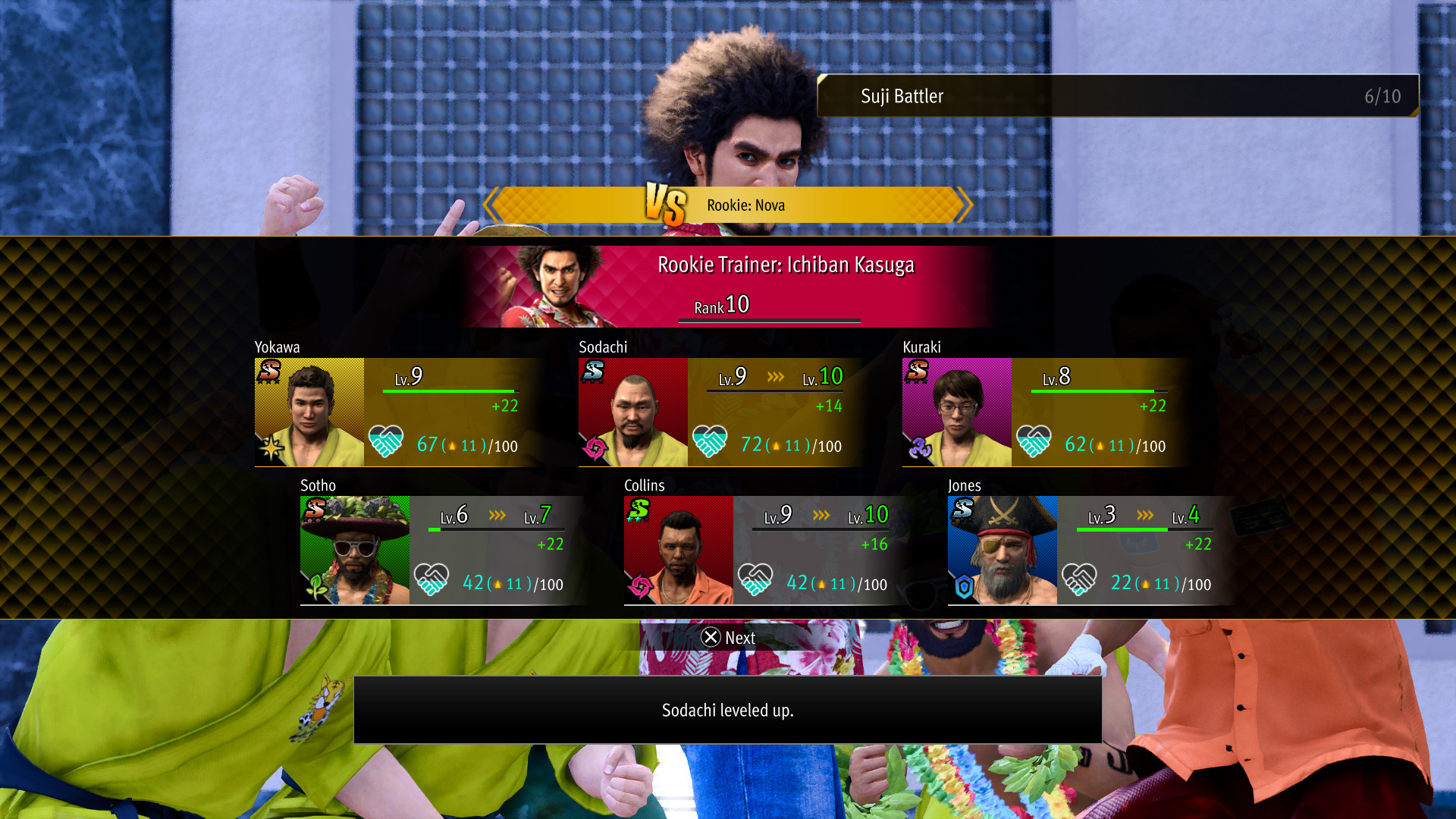
Though the Sujimon minigame isn’t quite substantial enough to be a stand-alone experience - especially nestled in the shadow of Infinite Wealth’s excellent storyline and combat - it still shows that even a few subtle tweaks here and there can spice up an old formula to great effect.
There are plenty of lessons here for any who might want to make a monster-capturing game of their own. Even subtle mechanics like monster movement and positioning can create whole new avenues of strategy for players. Having moves that slow down or speed up how quickly you get to act next helps keep the pace of battles varied and fresh. The likes of Pokémon could also learn from Infinite Wealth’s willingness to embrace gacha mechanics. While irresponsible developers can abuse gacha systems, the thrill of opening a booster pack of new monsters is hard to replicate elsewhere. Infinite Wealth's Sujimon minigame teaches us that it’s the little things that make big differences.
For more games that scratch a similar itch as Like a Dragon: Infinite Wealth, our guides to the best RPGs and the best story games may offer you a few more adventures worth checking out.

An editor and freelance journalist, Cat Bussell has been writing about video games for more than four years and, frankly, she’s developed a taste for it. As seen on TechRadar, Technopedia, The Gamer, Wargamer, and SUPERJUMP, Cat’s reviews, features, and guides are lovingly curated for your reading pleasure.
A Cambridge graduate, recovering bartender, and Cloud Strife enjoyer, Cat’s foremost mission is to bring you the best coverage she can, whether that’s through helpful guides, even-handed reviews, or thought-provoking features. She’s interviewed indie darlings, triple-A greats, and legendary voice actors, all to help you get closer to the action. When she’s not writing, Cat can be found sticking her neck into a fresh RPG or running yet another Dungeons & Dragons game.